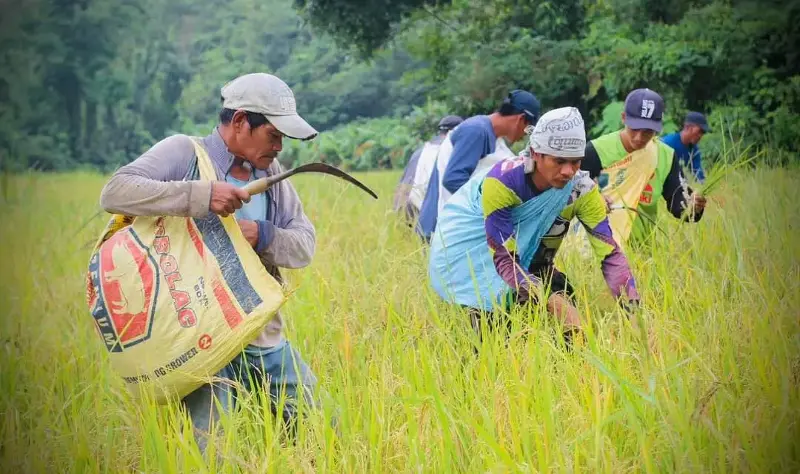
MANILA, Philippines – The Asian Development Bank (ADB) is set to invest $500 million in the Philippines’ rice sector to help cut down emissions from production.
This is part of ADB’s broader plan to pour $1.5 billion across the Asia Pacific region — and a total of $40 billion by 2030 to make the global food production resilient against the mounting climate crisis and extreme weather events.
“We’re going to integrate water management, policy change, biodiversity conservation, alongside with the sustainable rice farming,” Qingfeng Zhang, senior director at ADB, told reporters Monday, June 9.
Zhang said this fund will be used for “irrigation, rice farming, and agricultural logistical development.”
Aside from the Philippines, other countries covered by ADB’s $1.5-billion investment are Bangladesh, Cambodia, China, and Pakistan.
As the world amps up efforts to reduce emissions, the agriculture sector has to keep up but without harming global food production.
Currently, rice production accounts for 1.5% of the world’s greenhouse gas emissions, according to the International Rice Research Institute. Rice production also eats up 40% of the global freshwater supply.
Methane, a powerful greenhouse gas, is emitted from flooded rice paddies when bacteria breaks down organic matter due to lack of oxygen. Coal, natural gas, and oil production also contribute methane emissions.
Making the rice sector resilient to climate shocks would require new ways to grow it — such as developing varieties that consume less resources but withstand extreme weather events, pests and diseases.
“They are also going to be nutritious and they are also going to be friendly to the environment by saving water, by ensuring the emissions are less,” Yvonne Pinto, IRRI’s director general, said on Monday.
Pinto said there is a “tremendous opportunity” in Asia to “create some stability in the food system to be able to provide for future generations.”
IRRI is working with ADB through the Consortium of International Agricultural Research Centers in establishing a clearinghouse facility as part of the $1.5-billion project. – Rappler.com
